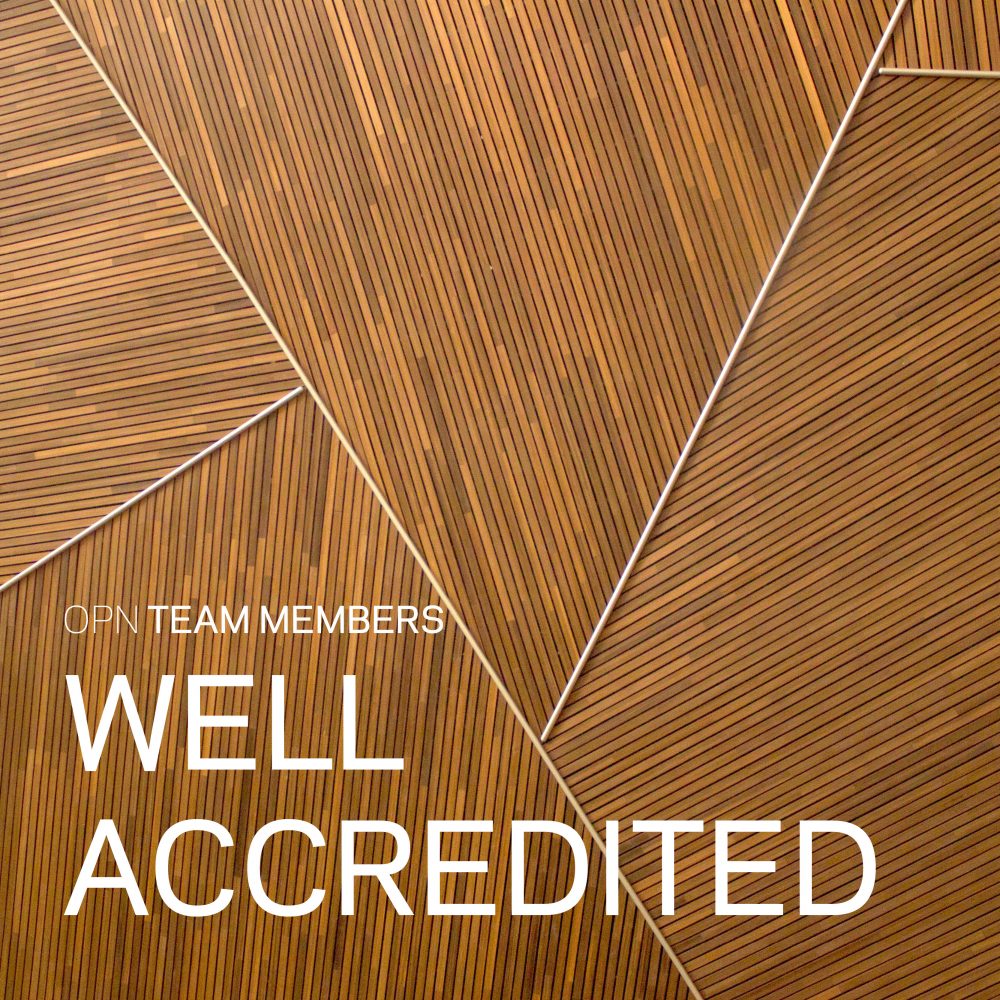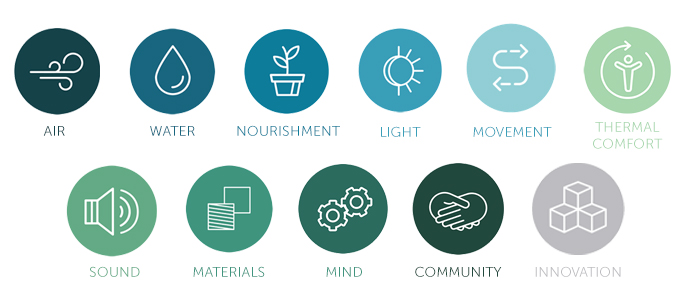OPN celebrates WELL Accredited Professionals

We’re excited to congratulate several OPN team members, who recently became WELL accredited by The International Well Building Institute (IWBI).
Congrats to:
Project Architect- Elizabeth Seiberling
Architect – Alex Streyffeler
Sustainability Director -Tate Walker
Architectural Intern – Thomas Thatcher
Job Captain – Jarrod Siegel
WELL’s unique focus is on the personal health inadequacies caused by the modern office. The WELL Building Standard underwent a comprehensive expert peer review process, which included three phases – scientific, practitioner, and medical review in order to create a holistic barometer.
Our culture today spends 90% of our time indoors, a statistic that is inextricably linked to our personal health and wellness. The WELL Building Standard’s goal is to quantify the human experience in built material by measuring if it’s performing healthily. Its matrix is comprised of air, water, nourishment, light, movement, thermal comfort, sound, materials, community, and mind. Each of these categories have points awarded within them according to pre-determined standards. Some examples of things it grades upon: health sleep policies, stress and addiction treatment, physical activity spaces, low-glare workstation design, serving sizes, and artificial ingredients.
As designers, we’re consistently asking ourselves how the buildings we design will translate for the daily lives of people. Having team members who are WELL accredited help ensure that our buildings are being designed with a holistic view of how the human experience and built environment relate and affect one another. Another congratulation to the team for attaining this certification.
With more than two dozen LEED-certified buildings and more than half of its staff LEED-accredited, OPN also is proud to be among the 525 firms who have pledged to design 100 percent carbon-neutral projects by 2030. In 2018, the firm’s average energy savings across its entire portfolio of work is 60% above the 2030 baseline, outpacing the industry average of 44%.

